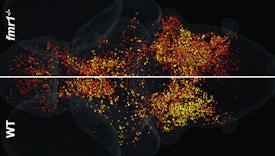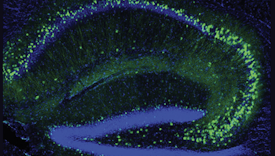
John Huguenard’s research program focuses on circuit dysfunction in neurodevelopmental and neurological disorders, including autism spectrum disorders, epilepsy and stroke. His lab uses animal models and electrophysiological methods to discover novel mechanisms of disease-causing hyperexcitability and cellular sites of drug actions that reduce such hyperexcitability. Drug targets include ion channels, neurotransmitter receptors, neuropeptide modulators and metabolic pathways. Studies include functional analysis of microcircuits, and for this, his team optimizes semi-reduced nervous system preparations such as ex vivo brain slices and induced pluripotent stem cell-derived organoids. Knowledge of circuit components (cells and synapses) obtained from these studies is then applied to design interventions. For example, Huguenard’s laboratory has combined this method with optogenetics to rapidly and effectively terminate seizures in animals with genetic or post-lesional epilepsy (Paz et al., Nat. Neurosci., 2013).
Huguenard is committed to rigorous research and training. He was a director of Stanford University’s neurosciences Ph.D. program as well as the Stanford epilepsy training program. And he coauthored the National Institute of Neurological Disorders and Stroke rigor document regarding preclinical research (Landis et al., Nature, 2012).

